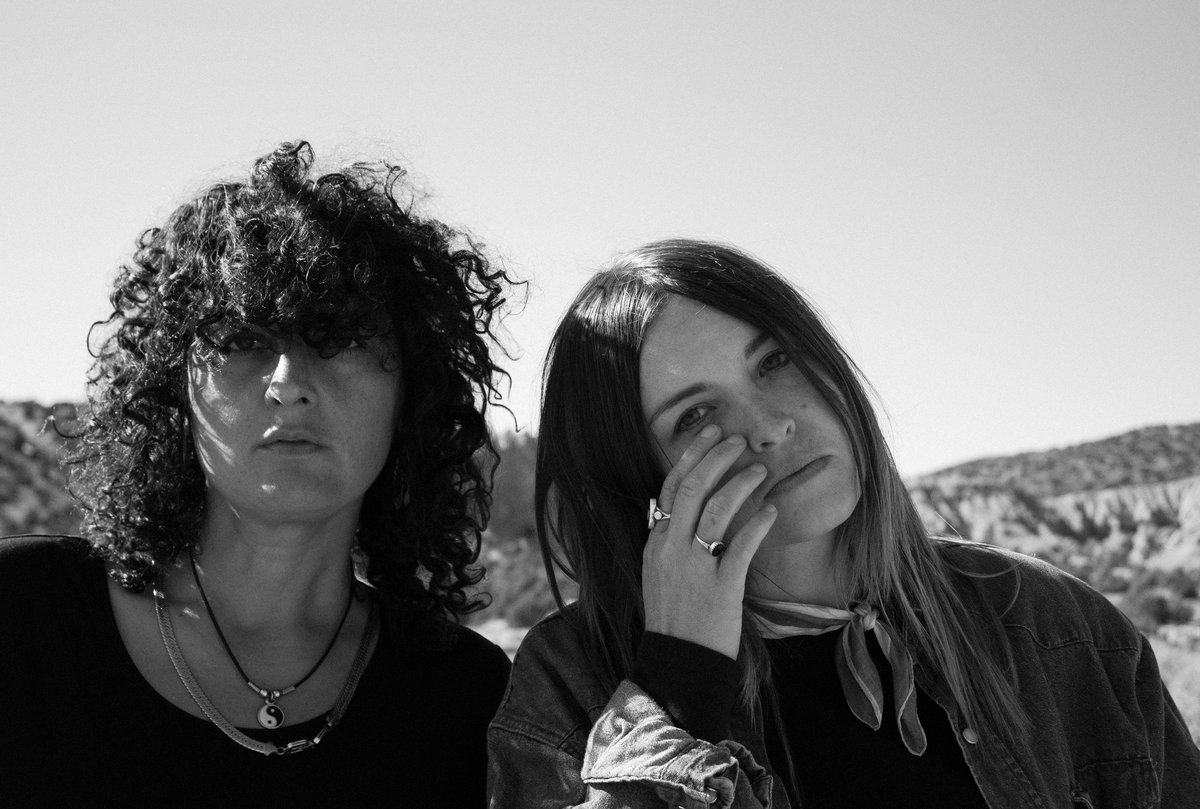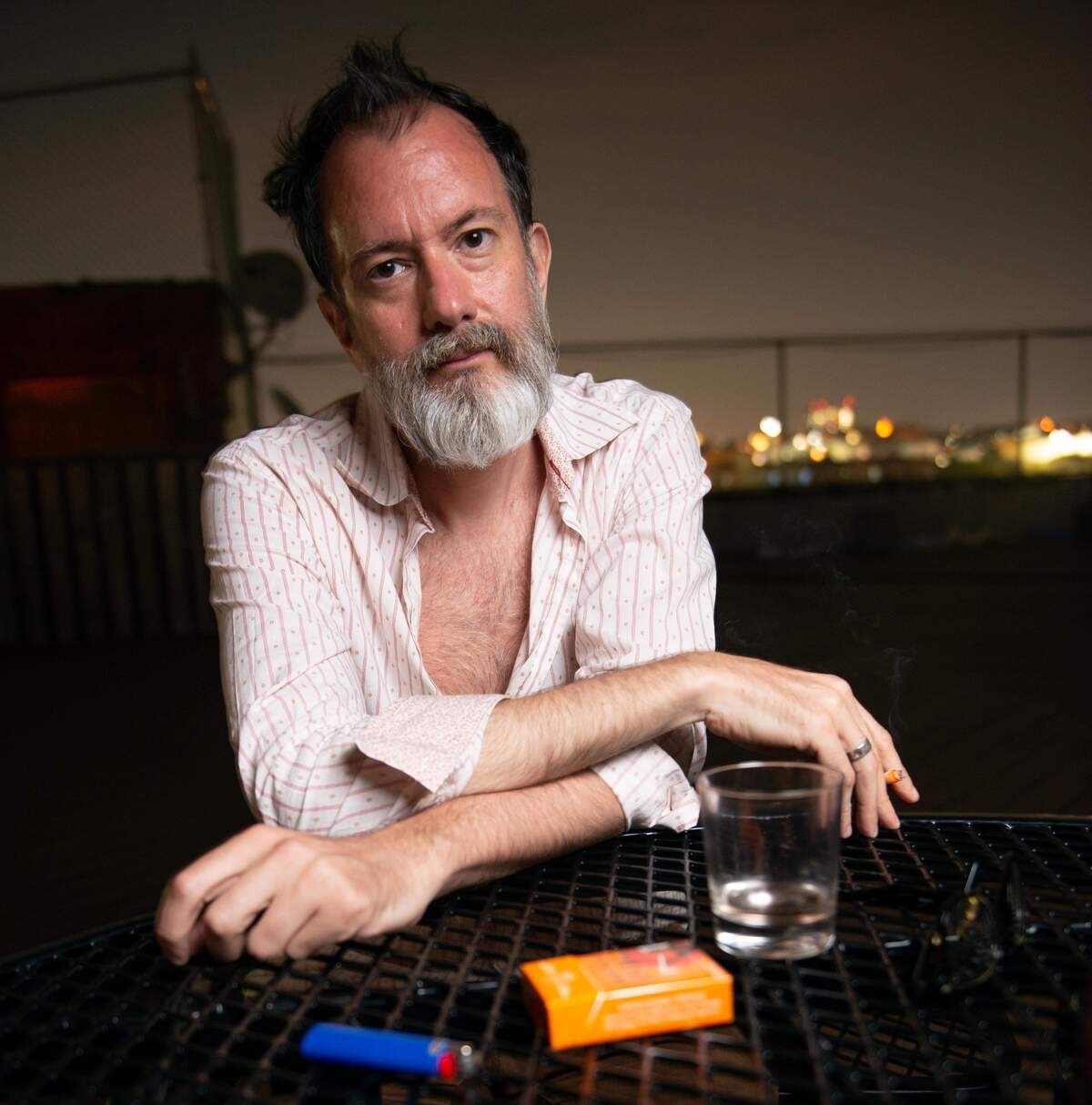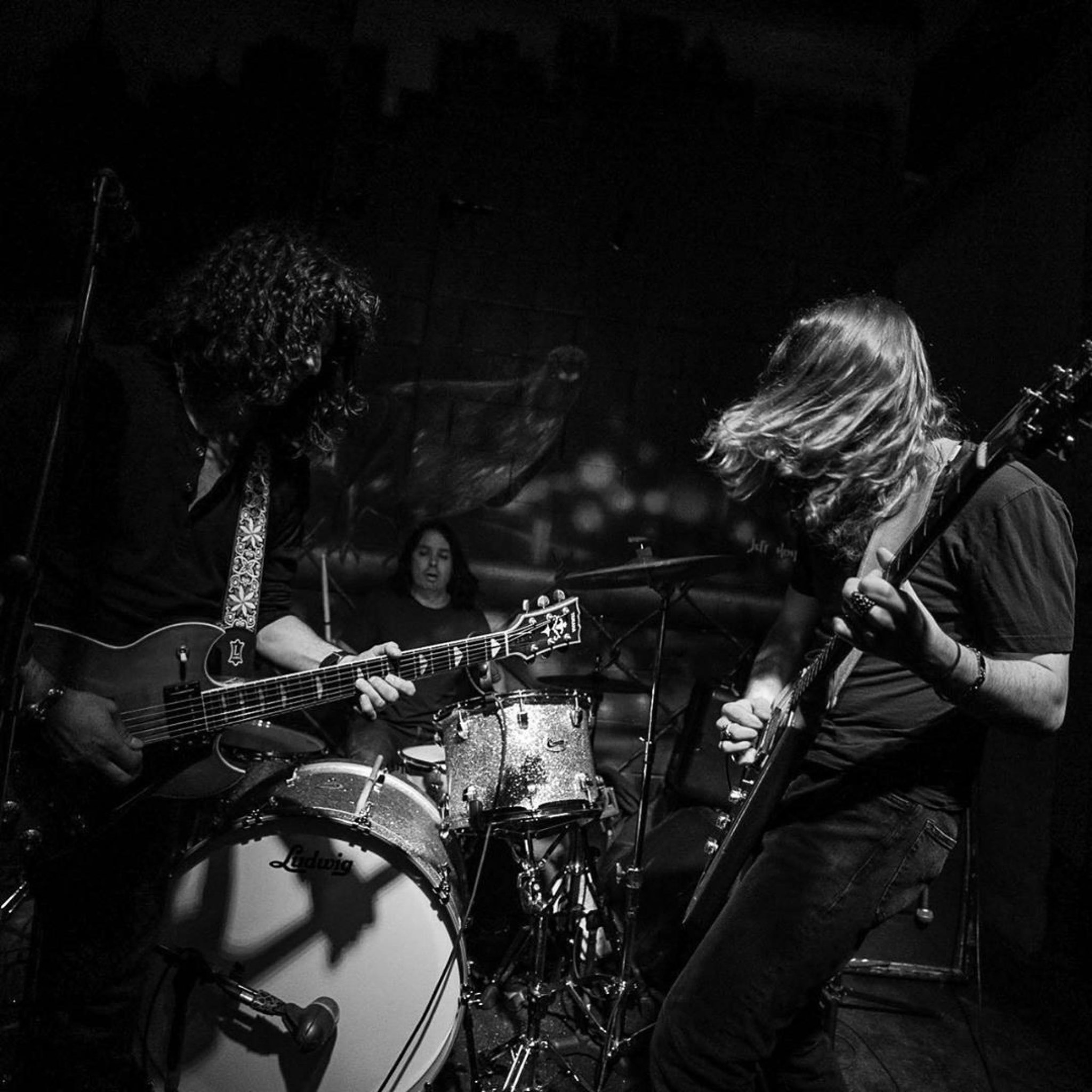Tan Cologne on Sound, Space, and Their New Album’s Vision
The music of Tan Cologne—Lauren Green and Marissa Macias—is entirely atmospheric, emancipated dreamscapes.
Though not in the sense that the music floats down from the ether; it also eases up through the floorboards, existing on a very human scale, delivered at a heartbeat pace, wrapping you in warm, weathered Indian blankets laid out under a New Mexican summer sky.
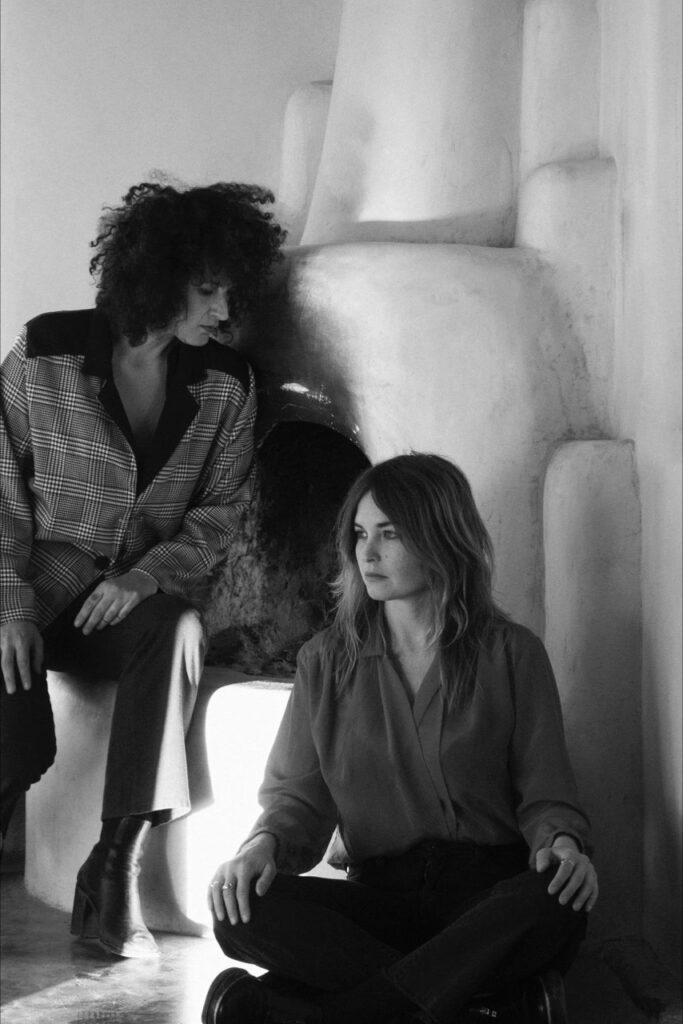
“Our upcoming album is extremely intuitive”
Jenell: Caught you folks with Rose City Band at Sister Bar in Albuquerque, where I was quite taken aback by your drifting splendor. Don’t know if you realized it or not, but the entire band (Rose City) was also caught up in your wanderlust.
Lauren: That’s so special to hear, and thanks for the uplifting words. Definitely loved chatting with you after the show as well. We’ve both been fans of all of Ripley’s projects from all different eras, so sharing space and music altogether was a dream. I remember seeing Wooden Shjips in Austin back in the day, so it was neat to collide.
Marissa: Cool. That’s so good to hear. We were happy to have met you after the show. I once saw Moon Duo play in a park in London because my flight was canceled due to airline strikes. So it’s kind of wild to time-travel years later and play in support of Ripley’s newest project in New Mexico.
Jenell: You have a haunting mix of instrumentation and vocals that mesh and weave together flawlessly. Was this a concept that came to be fully formed, or was that something you worked towards?
Lauren: Ah, we did formerly live in a haunted place where we first recorded. We began with layering guitar and synth loops, with the focus being heavy on guitar melodies. We both brought in vocals a little later and were drawn to a floating feeling in the realm. This all felt natural and intrinsic to our sound evolution.
Marissa: When we started Tan Cologne, I think we had similar obsessions with lingering vocals and tones that hovered in the atmosphere. It made sense to merge our own voices in that way, as we learned to sometimes harmonize and also use our vocals as instrumentation to accompany our double guitars, which was the #1.
Jenell: And since you worked toward this sound, how do you know when to say, “This is it,” or is your music a matter of continual evolution?
Lauren: After our first album, we started to feel more grounded in our sound, though we understood that it would be ever-evolving. One key element is that we have always loved—and still love—to record and mix our own music. This has become an important foundation to our ongoing sounds and thoughts. Our latest album will introduce some new instrumentation and concepts, which feels freeing—to be able to exist on a continuum of growth and exploration.
Marissa: Our upcoming album is extremely intuitive and has whatever sound that we feel happening now in our lives. We stopped because it was time to—more life has to happen for the next phase of focus and new sound. Our first album was our exploration into becoming one entity, and we were immense observers then. Now we function fluidly together.
Jenell: Trading vocals and guitars is not an easy task. Too many artists find themselves dueling, yet you two manage to hold things in check, essentially creating a collective whole out of the parts … there must be a tremendous amount of trust going on between you.
Lauren: Tremendous! Every part is written with the intent to weave together in how our sound moves. The support for each other in how we write, play, and perform is ongoing and a special entity in itself.
Marissa: Playing together is truly a special communication we have, and kind of so unique to one another. Maybe we were born for each other.
Jenell: To that end, do you play off of each other, expanding, perhaps improvising in the moment, or is the script important?
Lauren: We write by playing in parallel and expanding and encircling, but when performing, we feel like communicating most of the original notion is important. Personally, I would miss hearing all of Marissa’s melodies and sensibilities live if we were to venture off too far into the distance. However, sometimes we will add some sparkles, especially if performing live with a full band.
Marissa: It’s definitely an intricate process—from the writing to recording to performing. We do it all side by side, and I’ve grown a lot because of Lauren and the way she plays everything. I guess when it comes down to a show, I also watch her intently for our dance together.
Jenell: Your sound is deeply rich and lush. Would you mind sharing how you achieve that effect? (Please speak about your effects, guitar tuning, strings, and pedals.)
Lauren: Thank you. That’s a cool compliment. I play a Mustang and use reverb, chorus, occasional tremolo, and sometimes volume pedals for guitar, and we both run our vocals through reverb pedals. We like to create a spacious layer while having guitar melodies that cut through here and there to envelop and hold the atmosphere.
Marissa: Oo, yeah, that’s correct. I also use a reverb and delay pedal for my guitar and play a Jaguar. On my synth, named “Synthia,” I also put a reverb pedal and/or octave pedal. Things that bloom and elongate the sound are important. We think a lot about how things feel or translate, often in realms—I think this is our atmospheric realm.
Jenell: To that end, I’d have to suggest that your music makes for a very private listen. Is that an attitude you embrace?
Lauren: We do often hear people’s personal journeys and imagined visions relayed back to us after visiting with our music. It does feel as though it’s meant for personal experience. Our first album came out right before lockdown, so it kind of became frequent to hear people discovering our music because of having space for moments to indulge and spend lengthy amounts of time deeply listening.
Marissa: Maybe it’s also how it’s been created. We live a fairly solo and remote life in a remote space, and we write and record ourselves in that space—taking long drives to listen to the demos and mixes. So we’ve sort of created a bubble, and in a way, I could see our music being part of someone’s personal entryway to ours.
Jenell: Do you find yourselves tucking ideas away for later visitation? As a writer, I always have a composition book folded in my back pocket filled with treasures searching for a home.
Lauren: Not always purposefully, but sometimes we will rediscover a voice memo time capsule and want to explore and elaborate on a past idea—but bring it into the present timeline. It often ends up sounding completely different than the original recording.
Marissa: Yes, this is true.
Jenell: A little bird told me you have some new material coming out. Could you speak to that?
Lauren: If you stay tuned, you might hear even more bird chirps. We do have some good news coming soon, as well as a European tour with Trentemøller in May.
Marissa: Whatever we made in the last year was made during a time of great loss and change. I’m infinitely proud of that and what is to come.
Jenell: Then there’s ‘Cave Vaults on the Moon’ in New Mexico—an album title for which there’s gotta be a backstory.
Lauren: There is! We were inspired by a local composer named Joanne Forman, who wrote a soundtrack in the late ’80s to reflect a sculpture exhibition based on alien artifacts and entitled it Cave Vaults of the Moon. We thought this was such an incredible visual and elaborated on that thought to include the idea of New Mexico as the moon.
Marissa: We are visual artists as well, and the title and Joanne Forman’s work all felt like parts of many stories to share—all spun in, around, and where we live.
Jenell: Please, what’s on your turntable right now?
Lauren: Milan W., Khan Jamal, Maya Ongaku, Domsta, mixes by Xica Soul.
Marissa: Milan W., Pat Moon, Joy Division’s Decades, something Lauren’s playing on NTS Radio.
Jenell: One final question, please … There’s a remarkable sense of familiarity to your music—like things half remembered, circling overhead, looking for a place to land, an inner exploration. That said, does playing live make you feel vulnerable, as if you’re letting people too far in?
Lauren: Sometimes it does feel vulnerable, yet with an added sense of pride in sharing what we have created in a remote place all by ourselves. It can be pretty surreal to perform live. At times, we wonder if our music is meant to be performed live.
Marissa: This is a hard question for me. I often get stage fright and wonder—what am I doing? I do a form of light therapy to deal with this.
Then someone at every performance tells us something incredible about our music or sings along, and it totally unravels me.
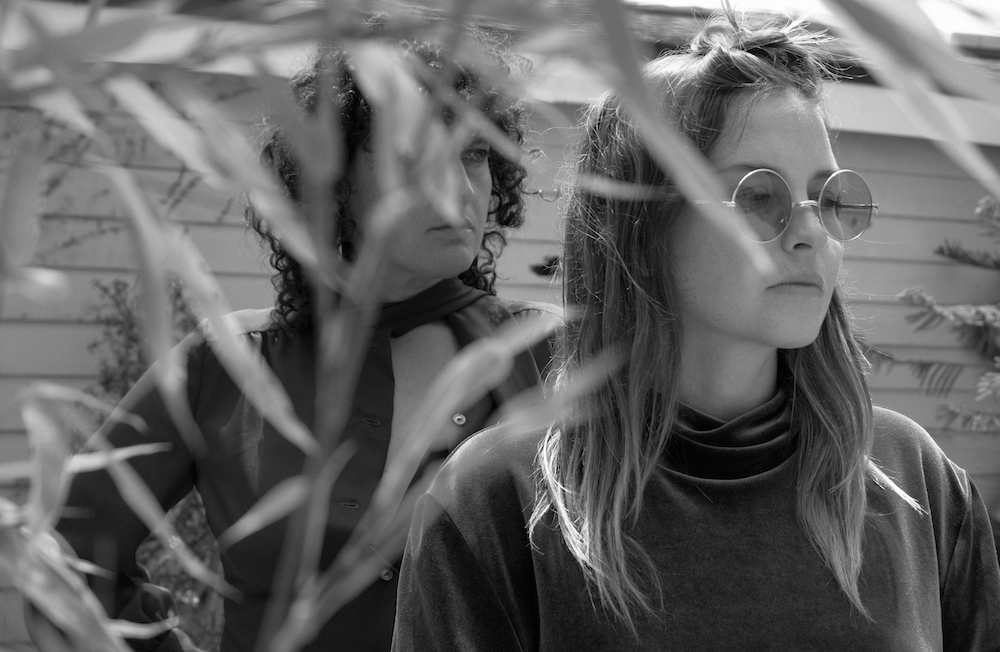
Jenell: I sincerely want to thank you for taking some time to sit down with me tonight, have I missed anything, is there something you’d like to say?
Lauren: Thank you for having us! We will always remember chatting with you after the show and your shirt. We rarely perform in New Mexico and usually keep it as our writing space, so it’s special you caught us and we caught you.
Marissa: Thank you for appreciating our sound, and feeling something from our performance. We don’t play out often so it’s neat that you were inspired to speak with us from seeing us in person. Is that true?
Jenell Kesler
Tan Cologne Official Website / Instagram / Twitter / SoundCloud

